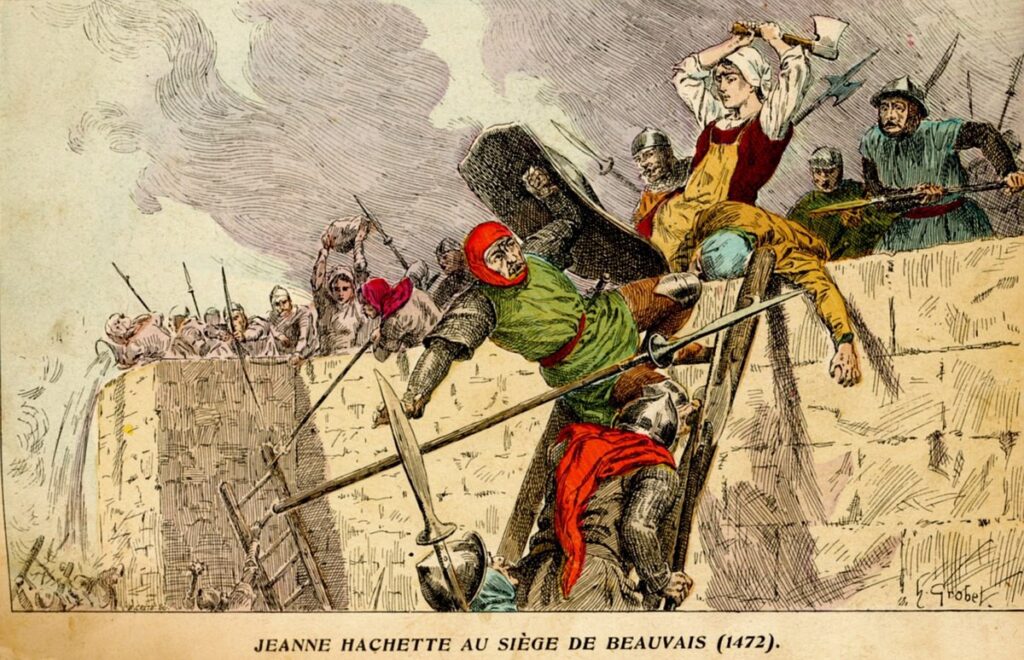Treasures in the Paper Pile, Part 1: Jeanne the Hatchet
In recent weeks I’ve been working my way through some of the paper stashes that have accumulated in the corners of my office in anticipation of the arrival of a new desk which will give me room for two computer screens.* In the course of sorting, I’ve run across a couple of women warriors I had forgotten about.
Allow me to introduce you to Jeanne Laisne,** who earned the nickname “Jeanne Hachette” (Jean the Hatchet) in 1472 for her role in defending the city of Beauvais against the armies of Charles the Bold, the duke of Burgundy, who had joined forces with other disaffected noblemen against King Louis XI of France.
The vanguard of the Burgundian army arrived on June 27. Charles had taken—and ravaged—three French towns before he reached Beauvais. The city was well fortified but had no artillery and few soldiers. With only the townspeople and a handful of soldiers to defend the walls, the duke expected the residents would surrender without a fight.*** That turned out to be a bad assumption.
When the city refused to surrender, the Burgundian commander ordered a simultaneous attack on two of the city gates. The duke’s soldiers rushed into the gap made when their cannon blew a hole in one gate, but the townspeople defended the breach valiantly. Men fought on the walls. Women threw flaming torches down on their enemies, catching the city gate on fire in the process. A few women took part in hand-to-hand combat at the breach.****
The Burgundian forces were on the verge of overrunning the city’s defenses when Jeanne entered the battle—armed with, you guessed it, a hatchet. Just as she arrived, a soldier planted the Burgundian flag on the battlements. She wrested it from him and hurled him off the wall. Her actions rallied the garrison, who then held off the besiegers until reinforcements arrived.
The siege continued for almost a month. ( In contrast to the usual siege experience, the besiegers grew short of supplies while the besieged had no trouble obtaining provisions.) On July 22, Charles the Bold gave up and headed west toward Normandy, burning and pillaging villages and fields around Beauvais as he went.
A grateful Louis XI rewarded Hachette for her act of bravery with a lifetime exemption from paying taxes—definitely worth more than a medal. As late as 1907, the town of Beauvais celebrated Hachette’s actions with an annual parade led by the city’s women—the Procession of the Assault. Prior to the onset of Covid, Hachette was still celebrated with an annual festival and reenactment. I suspect when the current troubles are over, she will be again.
*The universe working the way it does, my computer has started exhibiting some serious unhappiness, which means the new computer will probably get here before the new desk. *Sigh*
**Or perhaps Jeanne Fourquet. Both names appear in accounts of the incident.
***It is amazing how often this assumption appears in the accounts of cities under siege that I read in the course of writing Women Warriors.
****Some modern accounts claim Hachette organized the city’s female defenders. As best I can tell, this is wishful thinking.





